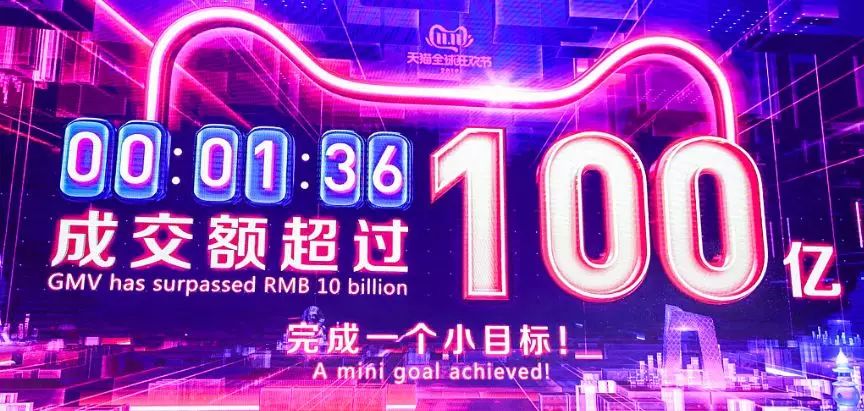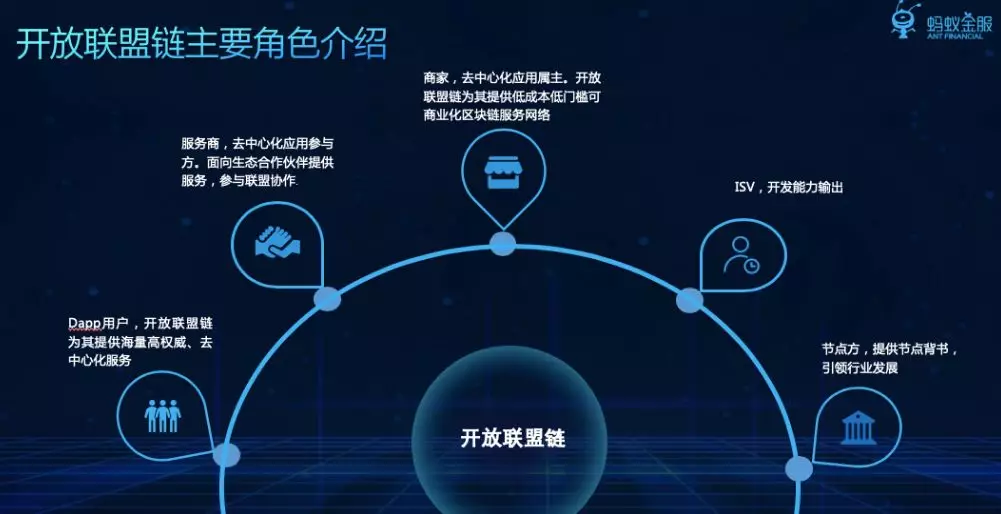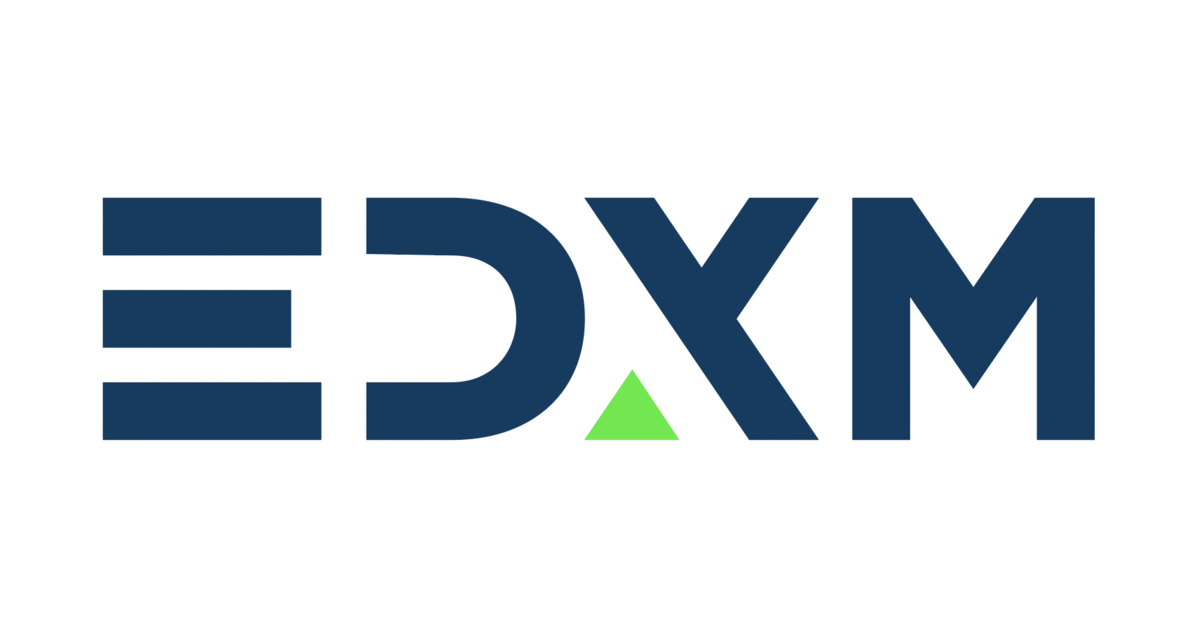Double 11 e-commerce platform is vying to adopt blockchain, hundreds of millions of buyers: Have a half-money relationship with me?
Original: Mu Mu
Source: vernacular blockchain
Not long ago, the American Project Management Association (PMI) released the top 50 of the world's most influential projects in the past 50 years, listing many major projects that have changed the world and affected the industry landscape. For example, the first is the World Wide Web, and the second is Apollo landed on the moon, and the sixth is the double 11 bachelor shopping festival from China.
This year's double 11, a group of e-commerce companies have responded to the country's vigorous development of the blockchain industry, have mentioned the various uses of the blockchain in the double 11. However, the last consumers who pay the bill may say: Whether the double 11 adopts the blockchain does not have much to do with them. So, who is the blockchain at this moment? What value did you create for?
- Bakkt launches agency-level hosting business: market saturation? nonexistent
- International Monetary Fund Liu Yan: Digital currency is unlikely to become a mainstream currency soon
- Comment: Developing blockchain technology is both positive and secure
01 billion double 11 hot blockchain is not thankful

Every double 11 is due to the influx of hundreds of millions of orders and billions of orders. The e-commerce platforms represented by Taobao, Tmall, Jingdong, etc. will face enormous challenges: the early 12306 train ticket ordering platform The situation that the crash can't be used is vivid. In the double 11 period, it can be said that every second is valuable to the platform, and absolutely no mistakes are allowed.
Therefore, in order to meet such major challenges, each platform has invested heavily in various "black technologies" to ensure the stable operation of the platform, so that buyers can be unimpeded in the process of browsing, placing orders, and paying . After several years of practical drills, it seems that early orders and payment collapses have rarely occurred in recent years. Most buyers are able to get a good order experience, and the advantages of offline business are constantly being opened. E-commerce's investment in those technologies "black technology" must have already received tens of thousands of returns.
With years of technical investment and the help of technical projects such as Ant Financial Cloud and Ali Feitian, Ali has revealed that the technical capability of “Double 11” in 2018 has reached 480,000 orders per second. “The transaction amount is not wrong, inventory No error."
In the past two years, consumers will find that the e-commerce platform seems to have also offered the same "unclear" black technology: blockchain. E-commerce has been investing in blockchain for a long time, mainly using the alliance chain to trace the source of goods. According to the introduction of some platforms, all aspects of goods from production to transportation and circulation can be traced back to the source, and multi-party supervision is introduced to make consumers more assured. However, the problem is coming…….
If the consumer wants to ask:
“Can you completely eliminate fakes by joining the blockchain?”
“Can the quality of the block be fully protected by using the blockchain?”
“Is the information on the blockchain necessarily uploaded?”
“Does the blockchain add to the purchases cheaper?”
“Is it more beneficial to join the blockchain?”
Looking at the solution of the current alliance chain, the answer to the above question is “No”. Because the solution of the e-commerce's traceability alliance chain can only trace the circulation process of goods, the process of purchasing raw materials, manufacturing processes and whether the information is actually on the chain of most commodities has no way to ensure complete leapfrogging.
In fact, in terms of traceability, compared with the solutions provided by many brand merchants or third parties, and the alliance chain traceability scheme, consumers can't feel much difference, but the technology development and operation of the alliance chain. The cost of network infrastructure and so on is much higher than the original plan.
At present, it seems that e-commerce companies have invested heavily in the alliance chain traceability business in the past two years. It does not bring much return to the platform as the technology of “black technology” that solved the congestion earlier, because the wool is on the sheep, but the sheep seems to Not willing to pay for it.
02 Limitations of the alliance chain

In fact, many of the friends mentioned in the previous alliance chain don't know much about it. We can simply think of it as a kind of synergy solution between multiple institutional merchants.
For example, companies A, B, and C collaborate to launch a business (collaboration) involving large amounts of money to revolve around each other, usually because of the large amount of capital flows involved.
Therefore, A, B, and C companies need to spend a lot of manpower and resources, such as financial and business related personnel need to check accounts frequently.
When A, B, and C use the alliance chain scheme to coordinate accounting, each company will have a ledger, and all the transaction records in the collaboration will be synchronized in time, and ensure that the books in each company's hands are consistent. The three companies will save a lot of manpower, material resources and financial resources, and improve efficiency.
Of course, when the number of collaborative enterprises rises to a dozen or even dozens, the alliance chain will replace the more complicated and more expensive manpower and material resources, and serve the cooperation between these companies more efficiently. Focus human and material resources on the collaborative business to get more profit.
In fact, it is obvious that from the name of the alliance chain, it is known that the alliance works together to engage in things, but it also has its limitations…
1. The alliance chain is hard to play a value in the C-side service
Just like the alliance chain launched by the major e-commerce companies in the 11th, it is not very valuable to the C-end (ordinary users or consumers), because the alliance chain is not sensible to the C-end users. Not only because consumers can't participate.
Most of the alliance chains are not open source in technology. They are called "black boxes", and many alliance chains do not have blockchain browsers for consumers to query. Even if they provide queries, they can only find some irrelevant records, and then at most give consumption. A very "gimmick" certificate…
For example, let's go buy fruit, come to the fruit stand, and ask the fruit dealer: "Boss, you are sweet and not sweet, is it good?"
The boss replied: "Of course it is sweet. This melon is imported. It does not use pesticides, pollution-free, pure organic crops. The villagers in our village look at them every day. The village chief has passed the certification. The city management captain also checked. And wrapped up."
It is, usually, when we say a bunch of nonsense, directly ignore the words: "nonsense, talk, cut, I taste."
The alliance chain is not useless, but the stage in which To B, the value of agency-to-institution, business-to-business collaboration, not To C. Even if the service is provided to the C-end, the consumer can't perceive it. For the consumer or the average user, it is no different from the original centralized solution, and it can only be a useless gimmick. Of course, it must be imposed on the C-end, it is not impossible, but first you have to solve the problem of C-side trust, then this seems to have returned to the original point, even if the alliance chain has better expansion, it can not get a strong consensus on the C-end. .
I remember that the concept of blockchain in the past two years has been heated up a few times. Some Internet vendors have launched a variety of "blockchain" games and applications directly for ordinary consumers. Baidu Leitz, Netease's encrypted planet, Millet encrypts rabbits and so on. Because their so-called "blockchain" does not have much public information, it is completely opaque to consumers. So, what is the relationship with the "blockchain"? Looking at what these products will cool down later, we will know how powerless the Internet vendors are trying to face the ordinary consumer.
2. Non-substitution is weak
In some application scenarios of the alliance chain, in fact, the traditional technical solutions are also very mature, which requires a high level of competition with the traditional solution. If the alliance chain costs a high cost, the effect is not higher than the traditional solution, and it is not only easy to be replaced. It is still difficult to adopt it on a large scale.
Take a lot of the electronic chain application that the alliance chain often shows off. At present, the court treats the electronic fixed evidence on the blockchain and the ordinary electronic evidence fixed scheme. If an electronic evidence is not in the chain, it must first You must obtain a notarial certificate from a notary office or you can obtain a certificate through a third-party judicial appraisal.
It is understood that the traditional electronic evidence fixed industry chain has been relatively mature, and the cost is low. As a result, the alliance chain has at least no advantage at present in the judicial electronic depository scheme. In the future, perhaps one day the court will directly recognize and collect evidence on the chain of letters, which is necessarily a large public utility alliance chain or a mainstream public chain.
3. Sharing the economic trend, the alliance chain is completely unsuitable
In recent years, there has been a very hot concept that has changed the lives of many people, that is, the "sharing economy." To put it simply, it is the US group take-out, drip taxi, shared charging treasure, shared bicycle, etc. People continue to open all kinds of large-scale collaborative projects, and have also been highly praised by many economists, thinking that the future sharing economy Will maintain rapid growth and will reconstruct future business models.
However, this trend has encountered many problems in the development process, and the contradictions and frictions between the centralized platform and the users have continued, even to the point where it cannot be reconciled. If the sharing economy continues to develop, these problems can certainly be solved using blockchains, but the current coalition chain is not suitable for large-scale collaboration.
03 Ali finally took a step forward and moved closer to the public chain "limited"

On October 8th, Alibaba's ant Jinfu announced the official open beta "open alliance chain", which was officially launched three months later. At first glance, many people still look at the alliance chain, but the author noticed the word "open". Learned from the product introduction of Ant Financial Services website:
The open alliance chain is a blockchain service network based on the ant blockchain alliance chain technology, which provides low cost and low threshold development, deployment, operation and maintenance and supervision. This product is dedicated to the promotion of blockchain technology among SMEs and individual customers around the world. It is truly available to everyone and benefits everyone.

To put it simply, although it does not join the network without a license like a public chain, this blockchain network will be “opened” to SMEs and small teams with a very low threshold, that is, it will meet global compliance. SMEs with regulatory conditions settle in deployment contracts, develop DApps , and provide terminal services. Enterprises can build a new blockchain without spending too much cost while building ecological and shared service benefits.
Compared with the common alliance chain with only a few network nodes, the biggest change is “openness”. This is precisely the limitation of the previous alliance chain and the limited convergence of the public chain. Compared with the public chain, the alliance chain has no expansion problems at present, and it is more compliant and controllable, and it can make the open service more smoothly launched globally.
In this step of Ali, it is not easy for a centralized business group to “open” and share benefits over a long span. Although it is still unclear whether this model will work, the public chain has not solved a large number of problems, it is indeed an excellent compromise, and the significance is extraordinary.
04 The value of the public chain is always irreplaceable

In essence, the alliance chain is not so "pure" after all, and the public chain is not the same. As far as Bitcoin is concerned, no single alliance chain can support decentralized digital gold like Bitcoin. Even if it is open again and the threshold is low, it will not work.
The reason why gold is gold is that it is “pure”, and the real-world gold is superior in physical properties, making it a “hard currency” in the world with almost irreplaceable status. Of course, all of this comes from consensus. As Ethereum co-founder Vitalik said some time ago, the alliance chain is only a compromise solution at this stage . When the alliance chain is adopted in large quantities, people will find that many problems are only The public chain can be solved. The value of the public chain lies in the fact that many applications, even decentralization from the grassroots, can be trusted by many people.
In fact, many people think that the blockchain advocated by the state some time ago does not include the public chain, especially the public chain with Token. In fact, no matter whether it is a public chain or a coalition chain, it has the value of solving problems and empowering the real economy. The route is slightly different, but the direction of serving humanity is the same.
The state is attacking the illegal fund-raising and excessive speculation and speculation under the banner of the blockchain. It has never been said that the public chain is not feasible, but most of the current public chains are either too radical, or have many problems, and the risks are obviously high. In a controllable alliance chain.
Postscript 05
Many people say that the blockchain advocated by the state is not a blockchain played by the people of the currency. In fact, there is only one type of blockchain. However, for the irrational pursuit of this new technology , it is most important to choose a solution that is down-to-earth and can solve the current problem under the existing technical conditions. Whether it is a coalition chain or a public chain, nor does it need to control whether the future alliance chain and the public chain are combined, or whether the public chain replaces the alliance chain, and each has its own stage.
We still need a lot of patience for the various blockchain solutions that are not perfect. Now all practitioners are actively exploring in different directions, because they still believe that the blockchain will eventually change the world like the Internet.
Message Mining No. 370: What role do you think played in the double eleven blockchain? Feel free to share your opinion in the message area.
——End——
『Declaration : This article is the author's independent point of view. It does not represent the vernacular blockchain position, nor does it constitute any investment opinion or suggestion. The copyright and final interpretation rights of the article belong to the vernacular blockchain. 』
We will continue to update Blocking; if you have any questions or suggestions, please contact us!
Was this article helpful?
93 out of 132 found this helpful
Related articles
- Blockchain talent expert think tank expert: governance chain, financial chain, industry chain for the new economy troika
- Market analysis: shrinking and falling, the most grind
- Pushing blockchains everywhere, the industry is showing its edge
- People's Daily Overseas Edition: Blockchain, "chain" to the future
- Observation | The rise of small countries! Looking at blockchain governance from Estonia
- Viewing the Supervision of Global Encryption Industry from the Regulations of Hong Kong Virtual Assets Trading Platform
- The Supreme People's Court requested to strengthen the application of blockchain to promote the wisdom court; the Hong Kong Securities Regulatory Commission issued a new virtual asset policy






